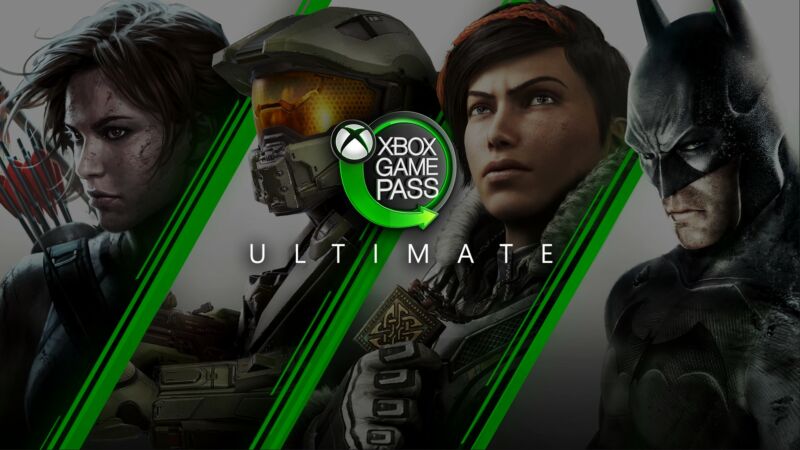Toldja so —
Regulator says move is “exactly the sort of consumer harm” it warned about.

Enlarge / Access to first-party games on launch day remains a major selling point for the Xbox Game Pass Ultimate tier.
Microsoft
The FTC says the across-the-board price increases that Microsoft recently announced for its Xbox Game Pass subscription service tiers represent “exactly the sort of consumer harm from the merger the FTC has alleged” when it sought to block Microsoft’s merger with Activision. In a letter to the court posted as part of an ongoing appeal by the FTC in the case, the federal regulator alleges Microsoft’s moves are a clear example of “product degradation” brought about by “a firm exercising market power post-merger.”
The letter’s primary focus is on the soon-to-be-discontinued $10.99/month Console Game Pass tier. That’s being replaced with a $14.99/month Game Pass Standard tier (a 36 percent price increase) that no longer includes “day one” access to all of Microsoft’s first-party titles. To maintain that key benefit, “Console” subscribers will have to spend 81 percent more for the $19.99 Game Pass Ultimate tier, which also includes a number of additional benefits over the current $10.99/month option.
Is this “based on the acquisition”?
The FTC notes that these changes “coincide with adding Call of Duty to Game Pass’s most expensive tier.” Previously, Microsoft publicly promised that this Game Pass access to Activision’s ultra-popular shooter would come “with no price increase for the service based on the acquisition.”
It’s that “based on the acquisition” clause that’s likely to give Microsoft some wiggle room in arguing for its planned pricing changes. Inflation is also a sufficient explanation for a large portion of the price increase in nominal terms—the $14.99 Microsoft charged for a month of Game Pass Ultimate when it launched in 2019 is the equivalent of $18.39 today, according to the BLS CPI calculator. When Microsoft raised the Game Pass Ultimate monthly price from $14.99 to $16.99 just last year—just before the Activision merger was finalized—the company said in a statement it had “adjusted the prices to reflect the competitive conditions in each market.”
Microsoft might have a harder time finessing the alleged “degradation” inherent in going from the discontinued Game Pass Console tier to the new, more expensive Game Pass Standard tier. True, the replacement does include the online multiplayer benefits of Game Pass Core, which could previously be purchased separately. But the removal of the long-promised day one access to first party games will heavily reduce the value most subscribers get from the new option.
It’s now been over a year since the FTC first announced it intended to appeal the ruling that effectively stopped its attempted injunction against the merger deal. While Microsoft and Activision have moved forward with their merger since then, courts have reversed similar mergers on appeal even after a merger deal has fully closed.
Elsewhere in its letter, the FTC makes note of previous arguments that Microsoft’s recent round of nearly 2,000 Xbox-focused layoffs is a sign of “reduced investments in output and product quality” post-merger.